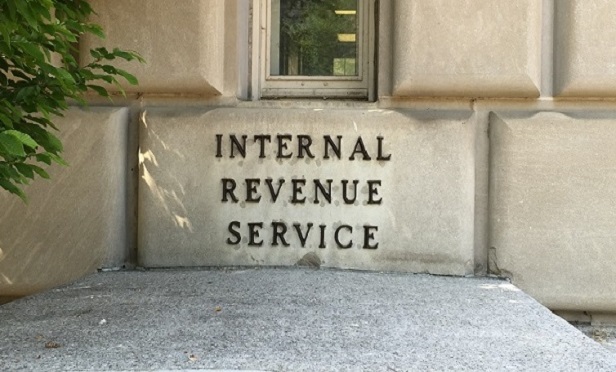 (Photo: Allison Bell/ALM)
(Photo: Allison Bell/ALM)
The number of taxpayers that were victims of identity theft fell for the third consecutive year, with the number dropping 71% in 2018, according to the Internal Revenue Service's just-released 2019 progress update.
In 2018, the IRS received 199,000 identity theft affidavits from taxpayers compared with 677,000 in 2015.
The number of confirmed identity theft returns stopped by the IRS declined by 54%, falling from 1.4 million in 2015 to 649,000 in 2018.
"Working in concert with state tax agencies and the private-sector tax industry," the IRS "developed a comprehensive and aggressive identity theft strategy that has resulted in significant inroads against stolen identity refund fraud," an agency spokesperson told ThinkAdvisor in a Monday email.
"Because of this focus, the IRS's key indicators of identity theft on tax returns have dropped significantly. Working together as the Security Summit since 2015, the IRS, state tax agencies and tax industry have made significant progress against identity theft each year, but no one is declaring victory. Tax-related identity theft remains a threat, and everyone must be vigilant about protecting their personal information," the spokesperson said.
Suspicious refunds recovered declined by 66%, the report said.
In 2018, financial institutions recovered 84,000 federal refunds totaling $112 million for the IRS. By comparison, institutions recovered 249,000 refunds totaling $852 million in 2015.
As to criminal investigations, during fiscal 2019, IRS investigators completed 2,797 investigations and achieved 1,735 convictions with a conviction rate of 91.2% as well as a Department of Justice case acceptance rate of 93%; U.S. Attorney case acceptance rate hit 88.5%, which compares favorably with other federal law enforcement agencies, the report states.
As to questionable refunds, which include identity theft and non-identity theft-related schemes, in fiscal 2019 the IRS initiated 65 criminal investigations; completed 140 criminal investigations; Achieved 167 convictions with a 91.8% conviction rate; and achieved a 66.7% publicity rate on adjudicated investigations.
IRS Commissioner Chuck Rettig said in the report that the 2019 filing season "was a great success as the IRS put in place the biggest set of tax law changes in more than 30 years" with the implementation of the tax law of 2017, the Tax Cuts and Jobs Act, all while tax filing season opened the same day the lapse in government funding concluded.
He noted, however, that the passage of the Taxpayer First Act, signed July 1, 2019, will require the agency to submit to Congress by the end of fiscal 2020 a comprehensive proposal to redesign the organization of the IRS to better support America's taxpayers.
"The IRS has not had a major reorganization of its structure since implementation of the IRS Restructuring and Reform Act of 1998," Rettig said.
The 2019 Form 1040 has been modified to include an inquiry regarding the acquisition or disposition of any virtual currency.
In 2019, Rettig said, "the IRS sent educational letters to more than 10,000 taxpayers who may have failed to properly report virtual currency transactions. The letters explained the tax obligations associated with virtual currency and describe how taxpayers can correct past filing and reporting errors."
Virtual currency, also called cryptocurrency, "will remain an important focal point" for the IRS in 2020.
© 2025 ALM Global, LLC, All Rights Reserved. Request academic re-use from www.copyright.com. All other uses, submit a request to [email protected]. For more information visit Asset & Logo Licensing.


